 It was a mixed bag for wildfire funding this session in the Oregon Legislature. Lawmakers came in with lofty ambitions — to create more stable funding to fight and prevent wildfires, to repeal an unpopular wildfire risk map and to get relief for 2020 wildfire survivors still waiting to be paid lawsuit awards. …The biggest wildfire funding bill that passed was House Bill 3940 — which includes a tax on oral nicotine products, taps the state’s rainy day fund and uses a very small increase to the timber tax. The bill should raise about $40 million per year to pay primarily for wildfire mitigation. …Ultimately, the legislature approved more than $200 million from the budget that can be used for wildfire suppression for the 2025-27 biennium. However, it didn’t come up with any new or longer-lasting funding source, Golden said. That means for now, money for suppression will come from Oregon’s general fund.
It was a mixed bag for wildfire funding this session in the Oregon Legislature. Lawmakers came in with lofty ambitions — to create more stable funding to fight and prevent wildfires, to repeal an unpopular wildfire risk map and to get relief for 2020 wildfire survivors still waiting to be paid lawsuit awards. …The biggest wildfire funding bill that passed was House Bill 3940 — which includes a tax on oral nicotine products, taps the state’s rainy day fund and uses a very small increase to the timber tax. The bill should raise about $40 million per year to pay primarily for wildfire mitigation. …Ultimately, the legislature approved more than $200 million from the budget that can be used for wildfire suppression for the 2025-27 biennium. However, it didn’t come up with any new or longer-lasting funding source, Golden said. That means for now, money for suppression will come from Oregon’s general fund.

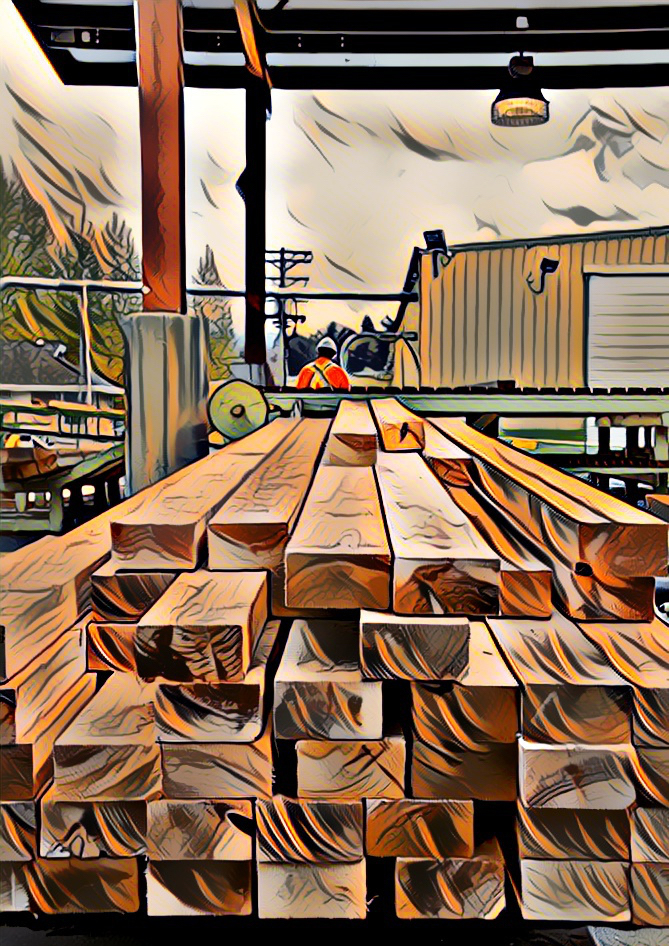 …In August 2024, a lumber mill owned by K & D Products and nestled in Panguitch, Garfield County’s largest city, went up in flames. Reports stated that, while the blaze didn’t get to the timber, the site’s machinery was severely damaged. The destruction landed a heavy blow to the community and the Frandsen family, who have owned and operated the mill for generations. …Between the area’s lumber heritage and the need to balance out tourism’s seasonal employment waves, Fiala gained enthusiastic support from state and local governments to build another sawmill. With his business partner, Barco — a logging company — Fiala acquired 25 acres north of Panguitch and began clearing space and bringing in power, water and gas. When the K & D Products sawmill burned during Fiala’s development, he spoke to the Frandsens and together they worked out a way for Fiala to take over what was left of the old mill and utilize it for his new business.
…In August 2024, a lumber mill owned by K & D Products and nestled in Panguitch, Garfield County’s largest city, went up in flames. Reports stated that, while the blaze didn’t get to the timber, the site’s machinery was severely damaged. The destruction landed a heavy blow to the community and the Frandsen family, who have owned and operated the mill for generations. …Between the area’s lumber heritage and the need to balance out tourism’s seasonal employment waves, Fiala gained enthusiastic support from state and local governments to build another sawmill. With his business partner, Barco — a logging company — Fiala acquired 25 acres north of Panguitch and began clearing space and bringing in power, water and gas. When the K & D Products sawmill burned during Fiala’s development, he spoke to the Frandsens and together they worked out a way for Fiala to take over what was left of the old mill and utilize it for his new business.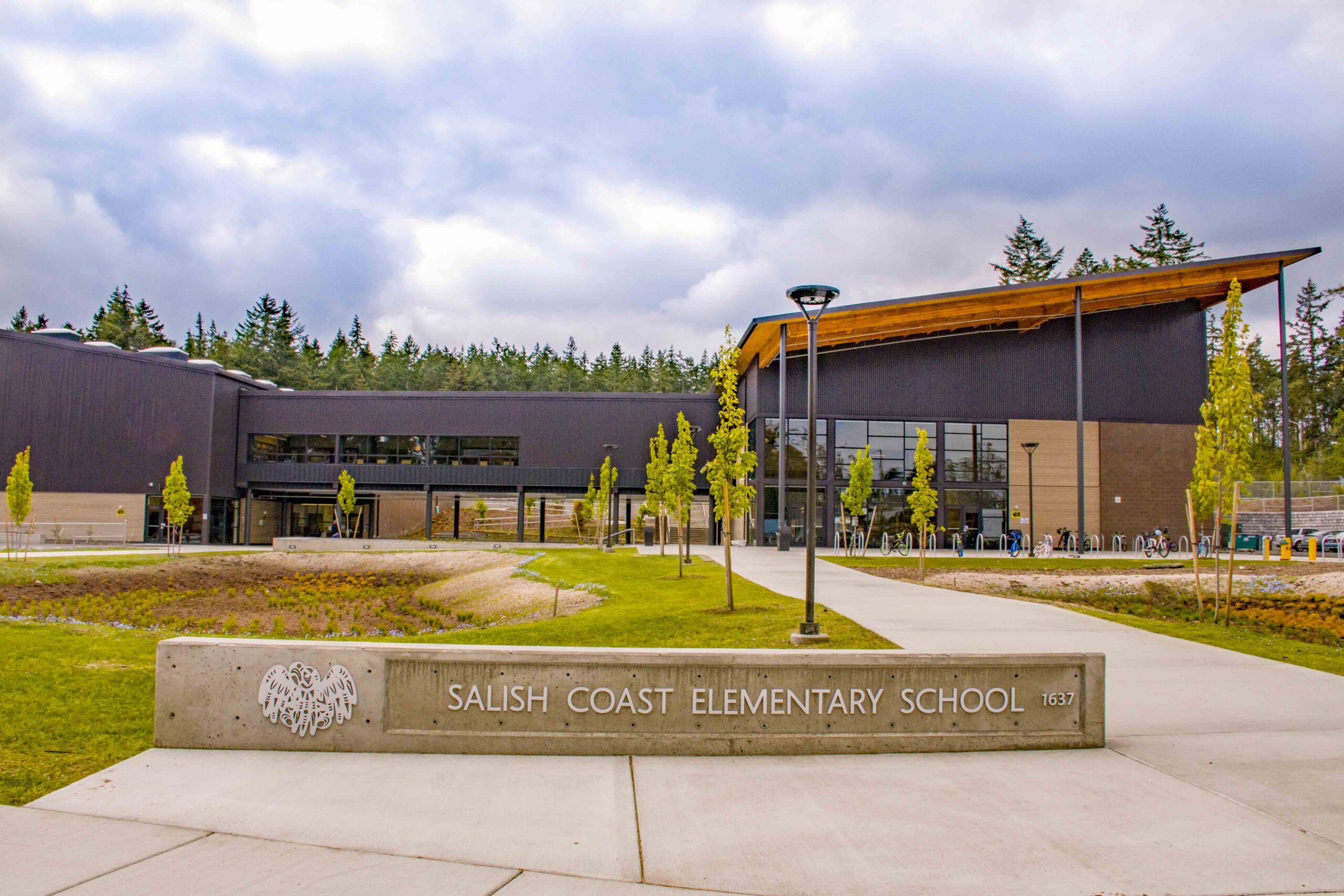 The U.S. Senate unanimously passed a bill to reauthorize a program that has provided billions to schools, roads and other services in rural Oregon and Idaho. The U.S. Forest Service’s “Secure Rural Schools and Self-Determination Program,” was initially crafted in 2000 to help offset the loss of timber revenue in rural counties. The program expired at the end of 2023, but the recently passed “Secure Rural Schools Reauthorization Act of 2025” would reauthorize the funding for more than 4,000 school districts and 700 counties across the country through the 2026 fiscal year. The bill’s lead sponsors include U.S. Sens. Ron Wyden and Jeff Merkley, both Oregon Democrats, and U.S. Sens. Jim Risch and Mike Crapo, both Idaho Republicans. …This year, bill sponsors are urging the U.S. House to reauthorize the program. Without its passage in the House, rural counties in Oregon, Idaho and across the country will fall short of funds that support local services.
The U.S. Senate unanimously passed a bill to reauthorize a program that has provided billions to schools, roads and other services in rural Oregon and Idaho. The U.S. Forest Service’s “Secure Rural Schools and Self-Determination Program,” was initially crafted in 2000 to help offset the loss of timber revenue in rural counties. The program expired at the end of 2023, but the recently passed “Secure Rural Schools Reauthorization Act of 2025” would reauthorize the funding for more than 4,000 school districts and 700 counties across the country through the 2026 fiscal year. The bill’s lead sponsors include U.S. Sens. Ron Wyden and Jeff Merkley, both Oregon Democrats, and U.S. Sens. Jim Risch and Mike Crapo, both Idaho Republicans. …This year, bill sponsors are urging the U.S. House to reauthorize the program. Without its passage in the House, rural counties in Oregon, Idaho and across the country will fall short of funds that support local services.


 EUGENE, Oregon — Sierra Pacific Industries plans to spend $253 million on upgrades to its Eugene, Oregon, sawmill site, according to published reports. The
EUGENE, Oregon — Sierra Pacific Industries plans to spend $253 million on upgrades to its Eugene, Oregon, sawmill site, according to published reports. The 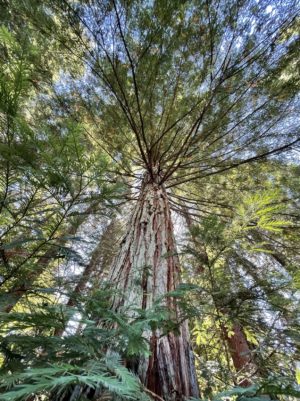
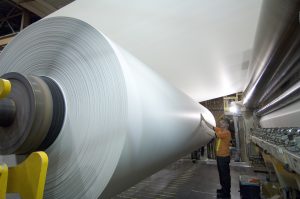 USK, Washington — The owners of the defunct Ponderay Newsprint Mill plan to sell its equipment at auction next month after years of empty promises to reopen what had been one of the largest employers in northeast Washington. The sprawling 927-acre property in Usk has 29 buildings and storage facilities. It is situated adjacent to the Pend Oreille River and the Pend Oreille Valley Railroad. Instead of making paper or reconfiguring the mill to make cardboard, as the new owners promised multiple times in public hearings, the site has produced nothing for the past several years. Instead the owners used vast amounts of electricity to run computers mining for cryptocurrency. The paper mill previously was owned by Lake Superior Forest Products, a subsidiary of Quebec-based Resolute Forest Products, and five major U.S. publishers. They declared bankruptcy in 2020, ending the jobs of about 140 workers. Now that equipment is being listed by Capital Recovery Group to be viewed on July 21 with online auctions to commence on July 22 and July 23.
USK, Washington — The owners of the defunct Ponderay Newsprint Mill plan to sell its equipment at auction next month after years of empty promises to reopen what had been one of the largest employers in northeast Washington. The sprawling 927-acre property in Usk has 29 buildings and storage facilities. It is situated adjacent to the Pend Oreille River and the Pend Oreille Valley Railroad. Instead of making paper or reconfiguring the mill to make cardboard, as the new owners promised multiple times in public hearings, the site has produced nothing for the past several years. Instead the owners used vast amounts of electricity to run computers mining for cryptocurrency. The paper mill previously was owned by Lake Superior Forest Products, a subsidiary of Quebec-based Resolute Forest Products, and five major U.S. publishers. They declared bankruptcy in 2020, ending the jobs of about 140 workers. Now that equipment is being listed by Capital Recovery Group to be viewed on July 21 with online auctions to commence on July 22 and July 23.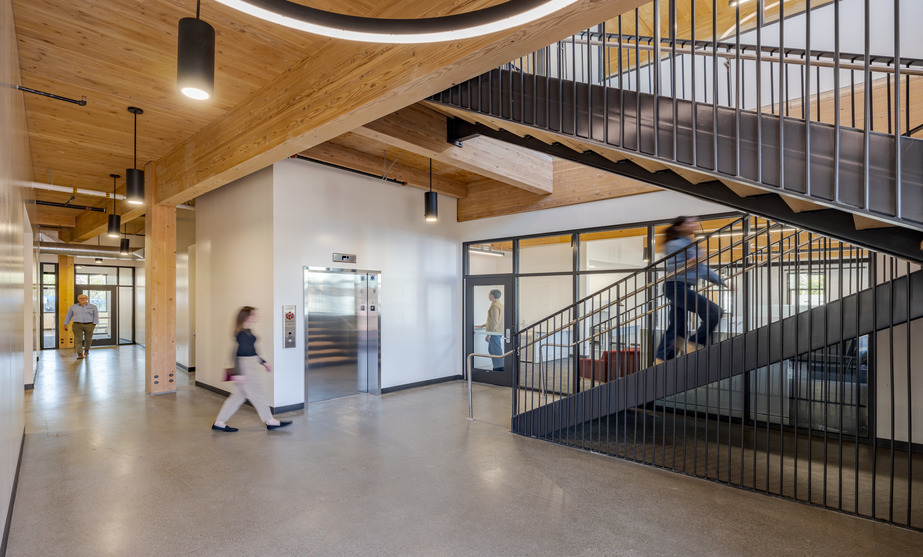
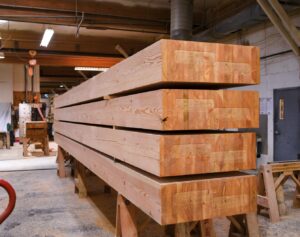



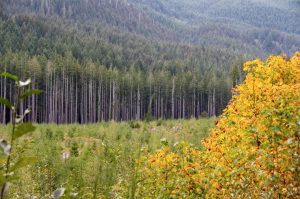 WHITE SULPHUR SPRINGS, Montana — The Helena-Lewis and Clark National Forest has released a final decision for the Bonanza Project, located in the Castle Mountains just east of White Sulphur Springs. Primary management activities planned include timber harvest and prescribed fire. “The project area is highly impacted by the mountain pine beetle and some areas have experienced 90% tree mortality,” said District Ranger Jason Oltrogge. “The timber generated from this project will provide wood products to local companies and prescribed fire will restore forests and reduce wildfire severity.” The Helena-Lewis and Clark National Forest partnered with the Montana Department of Natural Resources and Conservation to plan this project, and the joint effort made this project a reality. …The project includes commercial timber harvest on 1,980 acres and prescribed burning on 918 acres. Project implementation is anticipated to start later this summer.
WHITE SULPHUR SPRINGS, Montana — The Helena-Lewis and Clark National Forest has released a final decision for the Bonanza Project, located in the Castle Mountains just east of White Sulphur Springs. Primary management activities planned include timber harvest and prescribed fire. “The project area is highly impacted by the mountain pine beetle and some areas have experienced 90% tree mortality,” said District Ranger Jason Oltrogge. “The timber generated from this project will provide wood products to local companies and prescribed fire will restore forests and reduce wildfire severity.” The Helena-Lewis and Clark National Forest partnered with the Montana Department of Natural Resources and Conservation to plan this project, and the joint effort made this project a reality. …The project includes commercial timber harvest on 1,980 acres and prescribed burning on 918 acres. Project implementation is anticipated to start later this summer.

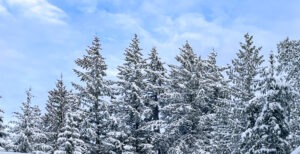 When U.S. Agriculture Secretary Brooke Rollins announced on Monday that her department would be opening up more US Forest Service land to development, she did so with the caveat that just two states — Colorado and Idaho — would not be impacted. Rollins, who serves in President Donald Trump’s cabinet, unveiled the plans during a meeting of Western state governors in Santa Fe, where she told reporters that the Agriculture Department would be rescinding the 2001 “roadless rule” established under former President Bill Clinton. The rule, hailed by conservationists as a landmark preservation effort, protects roughly 58.5 million acres of backcountry Forest Service land from road construction, logging and other development. “For too long, Western states, especially those with large swaths of land administered by our incredible Forest Service, have been inhibited from innovating because of burdensome regulations imposed by the federal government,” Rollins said.
When U.S. Agriculture Secretary Brooke Rollins announced on Monday that her department would be opening up more US Forest Service land to development, she did so with the caveat that just two states — Colorado and Idaho — would not be impacted. Rollins, who serves in President Donald Trump’s cabinet, unveiled the plans during a meeting of Western state governors in Santa Fe, where she told reporters that the Agriculture Department would be rescinding the 2001 “roadless rule” established under former President Bill Clinton. The rule, hailed by conservationists as a landmark preservation effort, protects roughly 58.5 million acres of backcountry Forest Service land from road construction, logging and other development. “For too long, Western states, especially those with large swaths of land administered by our incredible Forest Service, have been inhibited from innovating because of burdensome regulations imposed by the federal government,” Rollins said.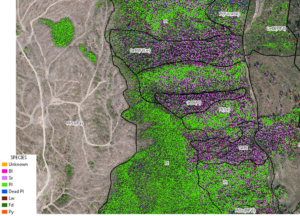 After a longer wait than expected, the a bill that would eliminate the unpopular Oregon Wildfire Hazard Map passed the Oregon House on June 24. Senate Bill 83 repeals a map meant to identify parts of Oregon at high risk of catastrophic wildfires but has become a lightning rod for anger from rural residents who say it places an unfair burden on them. The bill, which passed the Senate in April, now heads to the desk of Gov. Tina Kotek. The map, which was released earlier in 2025 and identifies areas at high wildfire risk, requires stricter building codes and creation of defensible space for roughly 100,000 properties in the name of wildfire prevention. The map was roundly condemned by impacted residents who said it was inaccurate, decreased property values and imposed burdensome regulations.
After a longer wait than expected, the a bill that would eliminate the unpopular Oregon Wildfire Hazard Map passed the Oregon House on June 24. Senate Bill 83 repeals a map meant to identify parts of Oregon at high risk of catastrophic wildfires but has become a lightning rod for anger from rural residents who say it places an unfair burden on them. The bill, which passed the Senate in April, now heads to the desk of Gov. Tina Kotek. The map, which was released earlier in 2025 and identifies areas at high wildfire risk, requires stricter building codes and creation of defensible space for roughly 100,000 properties in the name of wildfire prevention. The map was roundly condemned by impacted residents who said it was inaccurate, decreased property values and imposed burdensome regulations.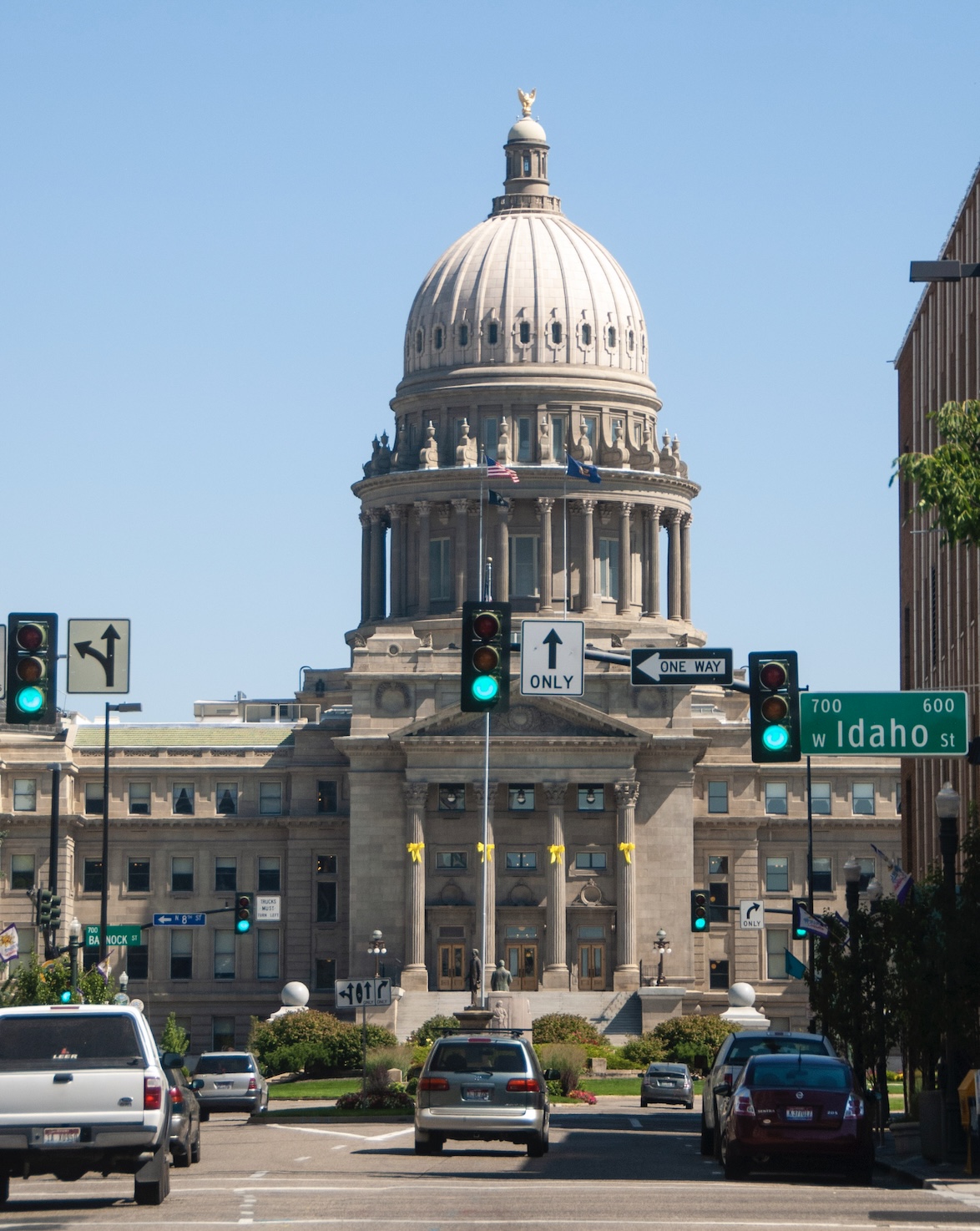 The Idaho roadless rule is not included in the effort by the Trump administration to rescind the national rule. A spokesperson for the U.S. Department of Agriculture said, “the Idaho state-specific roadless rule was part of the Administrative Procedures Act petitions and will not be affected by rescinding the 2001 Roadless Rule.” The rule, a collaboratively written offshoot of the national rule, was spearheaded by then-Gov. Jim Risch in 2006. It is more flexible than the national rule and allows limited logging and road building in some of the state’s roadless forests that are not otherwise protected as wilderness areas. But it also offers more stringent protections to the most remote areas. …Risch’s Idaho-specific roadless rule, implemented in 2008, overrides the national rule and forbids logging and roads on 3.2 million acres of the state’s 9 million acres of inventoried roadless areas. Some logging and roads are allowed, under limited circumstances, on the remaining 6 million acres.
The Idaho roadless rule is not included in the effort by the Trump administration to rescind the national rule. A spokesperson for the U.S. Department of Agriculture said, “the Idaho state-specific roadless rule was part of the Administrative Procedures Act petitions and will not be affected by rescinding the 2001 Roadless Rule.” The rule, a collaboratively written offshoot of the national rule, was spearheaded by then-Gov. Jim Risch in 2006. It is more flexible than the national rule and allows limited logging and road building in some of the state’s roadless forests that are not otherwise protected as wilderness areas. But it also offers more stringent protections to the most remote areas. …Risch’s Idaho-specific roadless rule, implemented in 2008, overrides the national rule and forbids logging and roads on 3.2 million acres of the state’s 9 million acres of inventoried roadless areas. Some logging and roads are allowed, under limited circumstances, on the remaining 6 million acres.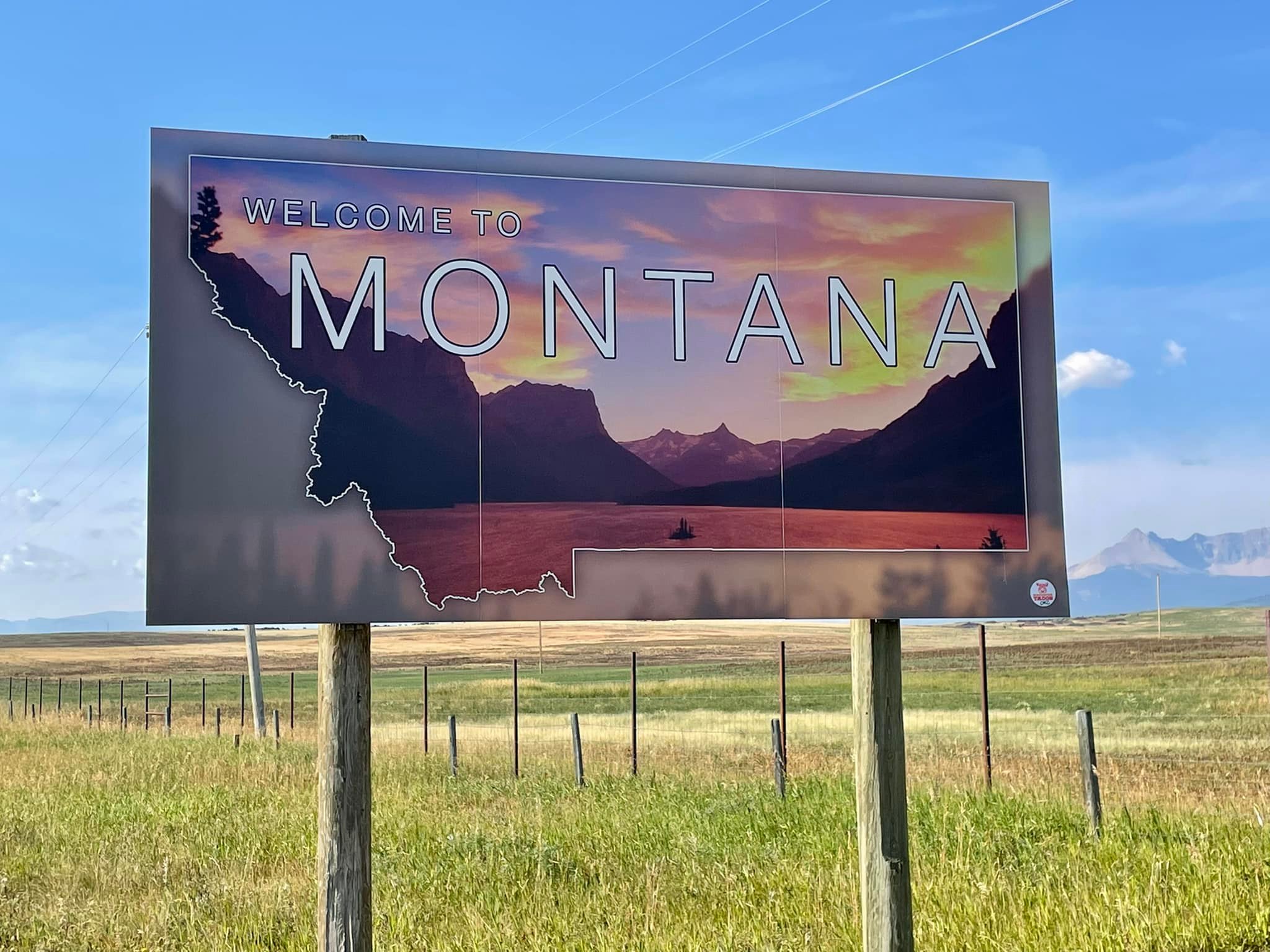 Less than two weeks have passed since the public learned of a Senate proposal to sell off public lands, and now, the U.S. Department of Agriculture has removed roadless protections for more than 58 million acres of federal land across the nation. …Helena Hunters and Anglers …decided to call an emergency meeting for Tuesday to discuss the implications of the announcement. If roadless areas were truly gone, the group might not continue their yearly monitoring of roadless areas. Montana has almost 6.4 million acres of inventoried roadless areas… Helena Hunters and Anglers has been monitoring some of those roadless areas for the past few years to assess their condition, and some of the findings aren’t good. …A number of other conservation organizations immediately criticized the action, calling it another handout to corporations to the detriment of the American public and future generations. The Colorado-based Center for Western Priorities said Rollins’ reasons were suspect.
Less than two weeks have passed since the public learned of a Senate proposal to sell off public lands, and now, the U.S. Department of Agriculture has removed roadless protections for more than 58 million acres of federal land across the nation. …Helena Hunters and Anglers …decided to call an emergency meeting for Tuesday to discuss the implications of the announcement. If roadless areas were truly gone, the group might not continue their yearly monitoring of roadless areas. Montana has almost 6.4 million acres of inventoried roadless areas… Helena Hunters and Anglers has been monitoring some of those roadless areas for the past few years to assess their condition, and some of the findings aren’t good. …A number of other conservation organizations immediately criticized the action, calling it another handout to corporations to the detriment of the American public and future generations. The Colorado-based Center for Western Priorities said Rollins’ reasons were suspect.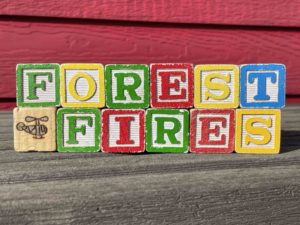
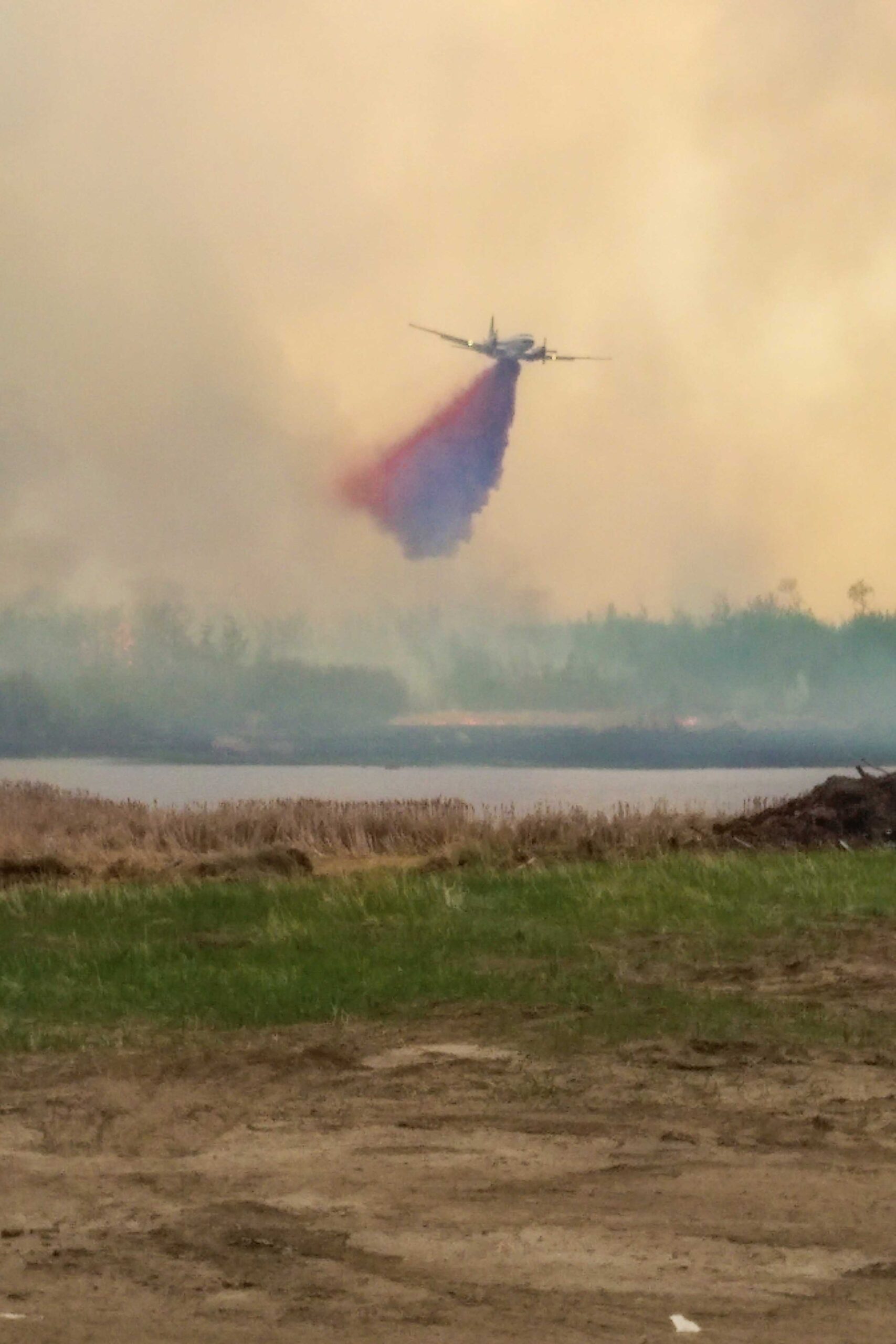 HELENA — Aerial resources have been critical in reaching the Jericho Mountain Fire, and Helena has … a tanker base that can support the largest firefighting planes. …The around three thousand gallons of retardant the average plane holds is just one of the reasons it is so effective. Another factor is the team on the ground who get it refueled and refilled and back in the air in just minutes. …The tanker base typically opens for operations on July 7th but kicked off their wildfire season on June 15th nearly a month early this year due to the Jericho Mountain Fire. Once they got the call, the team had the base operational in two hours. So far the tanker base has already helped planes drop more than 32-thousand gallons of retardant this year compared to zero at this time last year.
HELENA — Aerial resources have been critical in reaching the Jericho Mountain Fire, and Helena has … a tanker base that can support the largest firefighting planes. …The around three thousand gallons of retardant the average plane holds is just one of the reasons it is so effective. Another factor is the team on the ground who get it refueled and refilled and back in the air in just minutes. …The tanker base typically opens for operations on July 7th but kicked off their wildfire season on June 15th nearly a month early this year due to the Jericho Mountain Fire. Once they got the call, the team had the base operational in two hours. So far the tanker base has already helped planes drop more than 32-thousand gallons of retardant this year compared to zero at this time last year.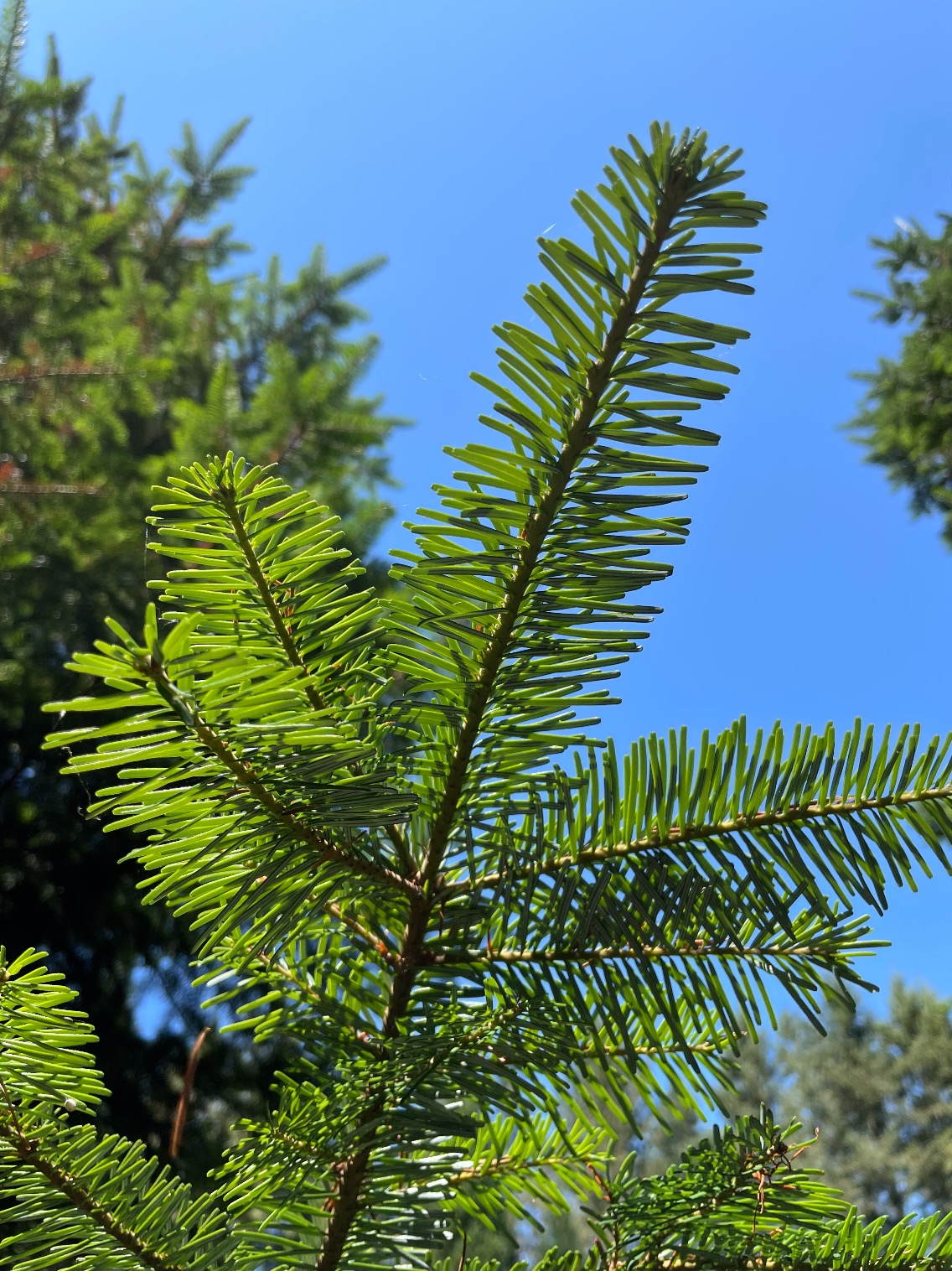 The U.S. Forest Service is headed for obsolescence due to recent personnel reductions, proposed budget cuts and re-organization plans. The ability of the Forest Service to meet its legislatively mandated multiple-use mission to the American public is being systematically dismantled. …over the last several months we’ve seen an agency deliberately dismantled by indiscriminate firings, forced retirements and coerced resignations. …The gutting of the Forest Service is a national crisis that will take years or decades to recover from once we, as a society, choose to stop the damage to our federal system of governance. We must individually and collectively speak out to all our elected officials and demand a stop to the out-of-control damage being done. We need to begin to rebuild a federal government that we can rely on to deliver critical services to the American public, including the Forest Service, and protect our wild landscapes from destruction.
The U.S. Forest Service is headed for obsolescence due to recent personnel reductions, proposed budget cuts and re-organization plans. The ability of the Forest Service to meet its legislatively mandated multiple-use mission to the American public is being systematically dismantled. …over the last several months we’ve seen an agency deliberately dismantled by indiscriminate firings, forced retirements and coerced resignations. …The gutting of the Forest Service is a national crisis that will take years or decades to recover from once we, as a society, choose to stop the damage to our federal system of governance. We must individually and collectively speak out to all our elected officials and demand a stop to the out-of-control damage being done. We need to begin to rebuild a federal government that we can rely on to deliver critical services to the American public, including the Forest Service, and protect our wild landscapes from destruction.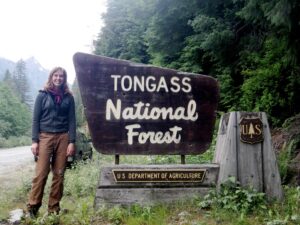 Members of the U.S. Senate last week proposed a major sale of federal land as part of the “Big, Beautiful Bill” proposed by Republicans to fund the U.S. government. If adopted, the proposed sale could be significant for Alaska, where the federal government owns and manages 61% of all land in the state… The concept would significantly increase the amount of logging required on federal land. The U.S. Forest Service would be required to significantly increase the amount of timber sold to loggers, and the Forest Service would be required to sign at least 40 long-term timber sales contracts involving national forests. Those kinds of long-term sales contracts contributed to the establishment of Southeast Alaska’s pulp mills, which relied on harvests from the Tongass National Forest. Most timber harvests from the Tongass currently are exported internationally without processing in the United States.
Members of the U.S. Senate last week proposed a major sale of federal land as part of the “Big, Beautiful Bill” proposed by Republicans to fund the U.S. government. If adopted, the proposed sale could be significant for Alaska, where the federal government owns and manages 61% of all land in the state… The concept would significantly increase the amount of logging required on federal land. The U.S. Forest Service would be required to significantly increase the amount of timber sold to loggers, and the Forest Service would be required to sign at least 40 long-term timber sales contracts involving national forests. Those kinds of long-term sales contracts contributed to the establishment of Southeast Alaska’s pulp mills, which relied on harvests from the Tongass National Forest. Most timber harvests from the Tongass currently are exported internationally without processing in the United States. The Oregon Department of Forestry and the USDA Forest Service will conduct low-level flights in June to monitor forest health. This survey, which began in the 1940s and paused only during the 2020 pandemic, is the longest continuous annual survey of its kind in the United States. Airborne researchers conduct the survey from fixed-wing aircraft, flying between 1,500 and 2,500 feet above ground level at speeds of 90 to 140 miles per hour. They follow a systematic grid pattern, four miles apart, to identify areas where trees are in distress. “Oregon has about 30 million acres of forest so flying in a grid pattern over it allows us to find problems even in remote areas hard to reach by vehicle or on foot,” said Christine Buhl, an entomologist with the Oregon Department of Forestry.
The Oregon Department of Forestry and the USDA Forest Service will conduct low-level flights in June to monitor forest health. This survey, which began in the 1940s and paused only during the 2020 pandemic, is the longest continuous annual survey of its kind in the United States. Airborne researchers conduct the survey from fixed-wing aircraft, flying between 1,500 and 2,500 feet above ground level at speeds of 90 to 140 miles per hour. They follow a systematic grid pattern, four miles apart, to identify areas where trees are in distress. “Oregon has about 30 million acres of forest so flying in a grid pattern over it allows us to find problems even in remote areas hard to reach by vehicle or on foot,” said Christine Buhl, an entomologist with the Oregon Department of Forestry.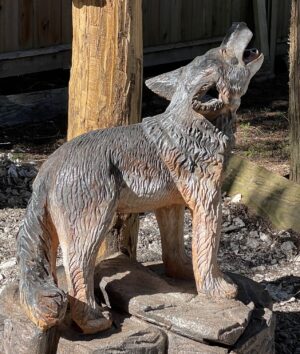 Sitting in an old-growth spruce fir forest, Doug Smith says he can see first-hand the impact of reintroducing wolves on the larger ecosystem of Yellowstone National Park. Long before Yellowstone became the world’s first national park in 1872, wolves thrived in the U.S. Rocky Mountains. But early Yellowstone rangers killed off the last of the park’s wolves by 1926. Then, in 1995, the U.S. government reintroduced wolves to Idaho and Yellowstone using wolves captured in Canada. Smith helped bring them back to the park and was in charge of Yellowstone’s wolf project for nearly 30 years until he retired in 2022. “Yellowstone is a very different place, with and without wolves,” Smith said. “Wolves definitely have changed this landscape with the help of other predators,” he added. “It’s very different.” And one wolf, in particular, fascinated wolf watchers for longer than almost any other.
Sitting in an old-growth spruce fir forest, Doug Smith says he can see first-hand the impact of reintroducing wolves on the larger ecosystem of Yellowstone National Park. Long before Yellowstone became the world’s first national park in 1872, wolves thrived in the U.S. Rocky Mountains. But early Yellowstone rangers killed off the last of the park’s wolves by 1926. Then, in 1995, the U.S. government reintroduced wolves to Idaho and Yellowstone using wolves captured in Canada. Smith helped bring them back to the park and was in charge of Yellowstone’s wolf project for nearly 30 years until he retired in 2022. “Yellowstone is a very different place, with and without wolves,” Smith said. “Wolves definitely have changed this landscape with the help of other predators,” he added. “It’s very different.” And one wolf, in particular, fascinated wolf watchers for longer than almost any other.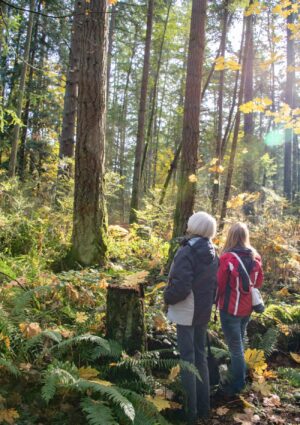 The Portland City Council made a major change last week to the team of inspectors that enforces the city’s Tree Code, which regulates all street trees and some trees on private land across the city. The council voted to move the entire tree regulation team—which currently falls under the Urban Forestry division, a program nested within the parks bureau—to Portland Permitting & Development. …Councilor Eric Zimmerman called into question Urban Forestry and how it polices and fines Portlanders seeking to trim or remove trees on or near their property. …The tree regulators—who also process and vet permits for tree removals, replantings and prunings—will no longer be the under the oversight of city forester Jenn Cairo, whose management has come under scrutiny.The council also voted to transfer $2.1 million of Parks Levy funds from the Tree Code regulation division to backfill maintenance cuts to outdoor parks.
The Portland City Council made a major change last week to the team of inspectors that enforces the city’s Tree Code, which regulates all street trees and some trees on private land across the city. The council voted to move the entire tree regulation team—which currently falls under the Urban Forestry division, a program nested within the parks bureau—to Portland Permitting & Development. …Councilor Eric Zimmerman called into question Urban Forestry and how it polices and fines Portlanders seeking to trim or remove trees on or near their property. …The tree regulators—who also process and vet permits for tree removals, replantings and prunings—will no longer be the under the oversight of city forester Jenn Cairo, whose management has come under scrutiny.The council also voted to transfer $2.1 million of Parks Levy funds from the Tree Code regulation division to backfill maintenance cuts to outdoor parks. 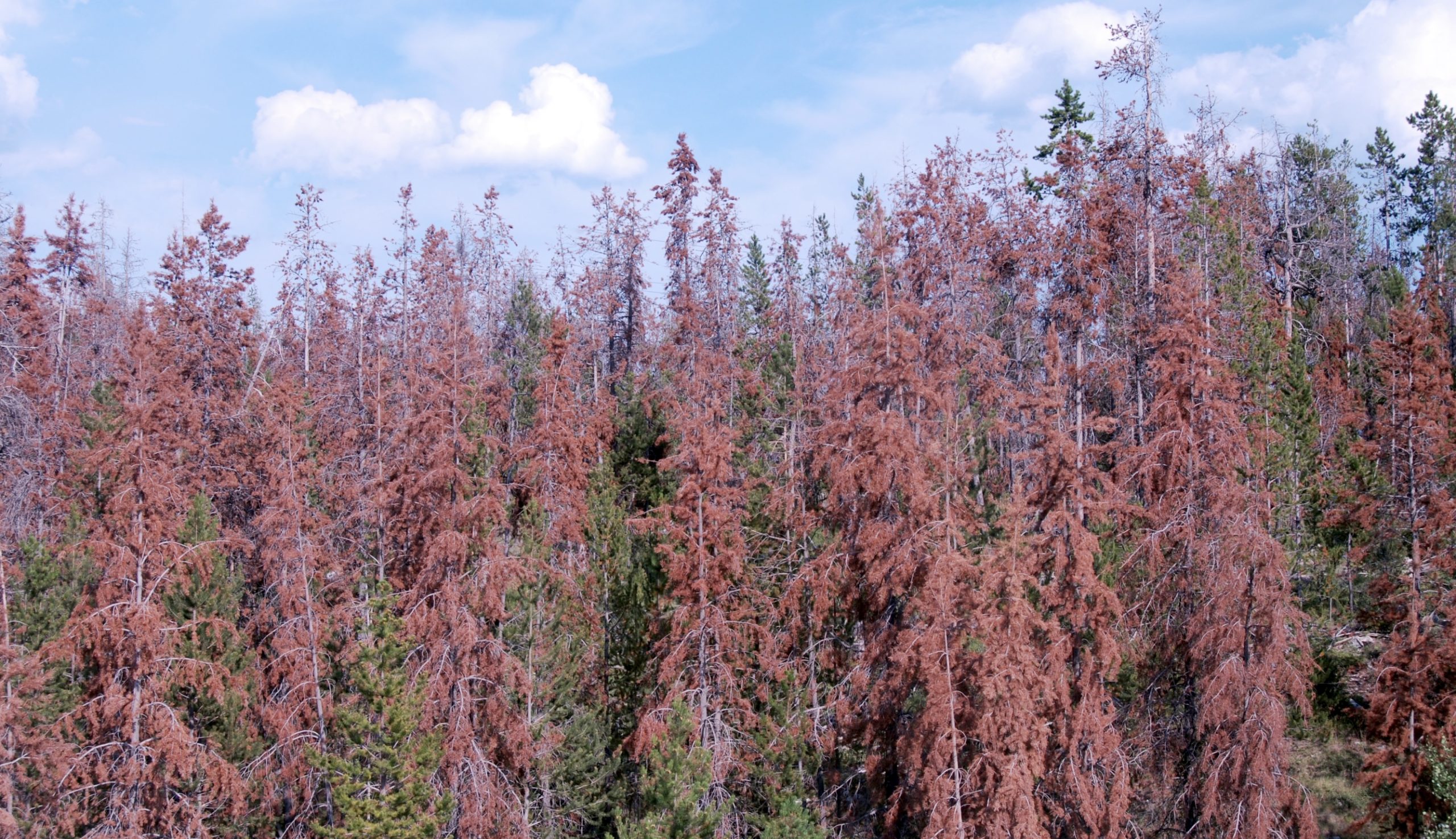 SALEM, Ore. – Researchers are taking to the skies this month to survey Oregon’s forests for damage from pests and other threats, according to the Oregon Department of Forestry and USDA Forest Service. Forest officials said that the Pacific Northwest Aerial Detection Survey is the longest continuous annual survey of its kind in the U.S. Airborne researchers use fixed-wing aircraft to identify trees in distress, flying between 1,500 to 2,500 feet above ground. “Oregon has about 30 million acres of forest so flying in a grid pattern over it allows us to find problems even in remote areas hard to reach by vehicle or on foot,” said Christine Buhl, ODF Forest Entomologist. The survey has highlighted a concerning trend of increasing tree deaths due to drought stress and beetle attacks.
SALEM, Ore. – Researchers are taking to the skies this month to survey Oregon’s forests for damage from pests and other threats, according to the Oregon Department of Forestry and USDA Forest Service. Forest officials said that the Pacific Northwest Aerial Detection Survey is the longest continuous annual survey of its kind in the U.S. Airborne researchers use fixed-wing aircraft to identify trees in distress, flying between 1,500 to 2,500 feet above ground. “Oregon has about 30 million acres of forest so flying in a grid pattern over it allows us to find problems even in remote areas hard to reach by vehicle or on foot,” said Christine Buhl, ODF Forest Entomologist. The survey has highlighted a concerning trend of increasing tree deaths due to drought stress and beetle attacks.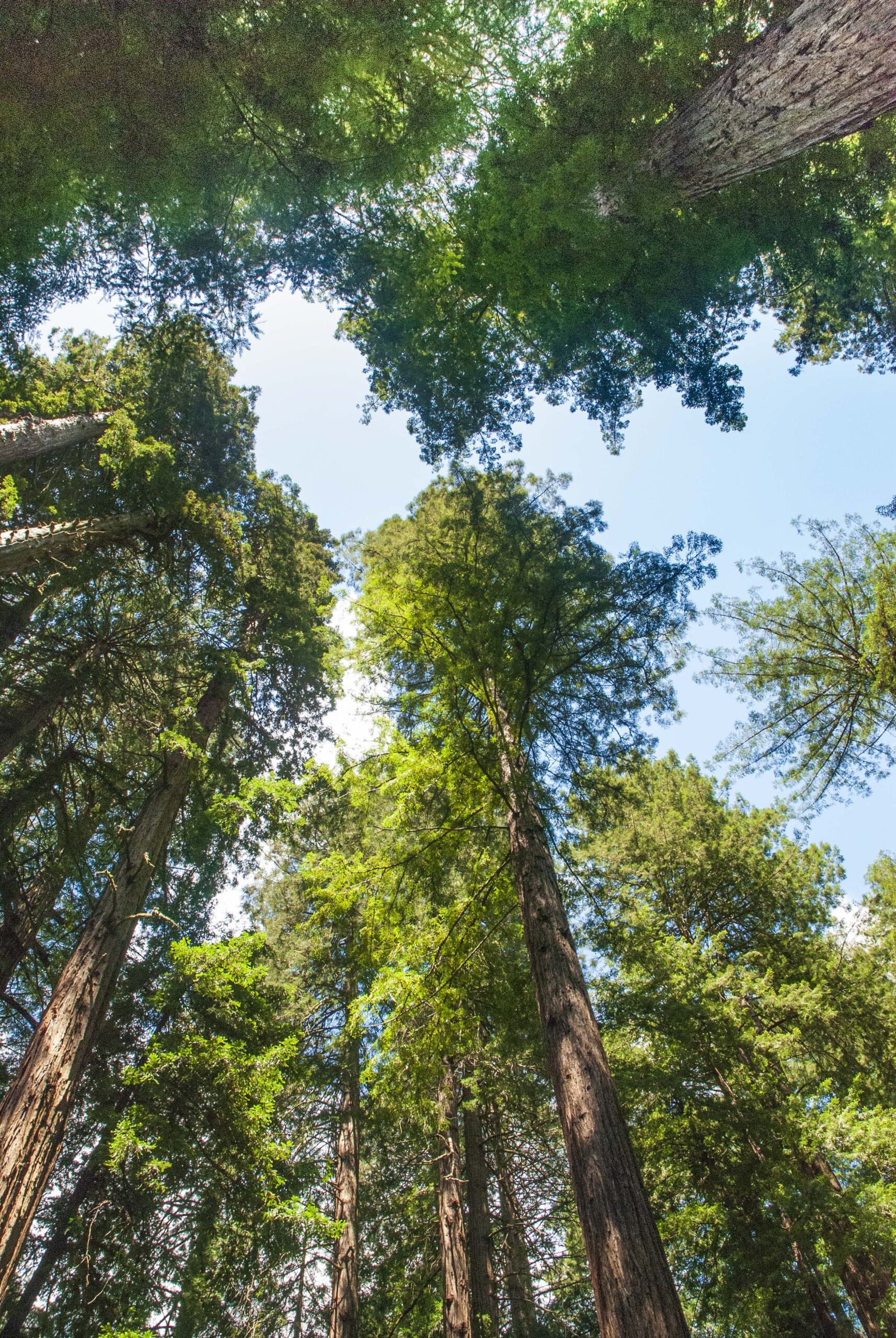 As California continues to reel from the historic firestorm that decimated portions of Los Angeles, the state is now facing the prospect of an exceptionally active wildfire season fueled by hot, dry conditions. It may not be ready: Experts say sweeping changes at federal agencies that play key roles in California’s wildfire preparation and response could make a challenging season even worse. …The forecast arrives as the Trump administration is enacting budget cuts, layoffs, office closures and restructuring at the U.S. Forest Service, the National Oceanic and Atmospheric Administration and the Federal Emergency Management Agency. Trump says changes will help eliminate federal waste and save tax dollars. However, these three agencies are critical components of California’s wildfire response capabilities… Weakening them at the start of fire season — and at a moment when human-caused climate change is driving larger and more destructive blazes — puts California at a dangerous disadvantage, multiple experts said.
As California continues to reel from the historic firestorm that decimated portions of Los Angeles, the state is now facing the prospect of an exceptionally active wildfire season fueled by hot, dry conditions. It may not be ready: Experts say sweeping changes at federal agencies that play key roles in California’s wildfire preparation and response could make a challenging season even worse. …The forecast arrives as the Trump administration is enacting budget cuts, layoffs, office closures and restructuring at the U.S. Forest Service, the National Oceanic and Atmospheric Administration and the Federal Emergency Management Agency. Trump says changes will help eliminate federal waste and save tax dollars. However, these three agencies are critical components of California’s wildfire response capabilities… Weakening them at the start of fire season — and at a moment when human-caused climate change is driving larger and more destructive blazes — puts California at a dangerous disadvantage, multiple experts said.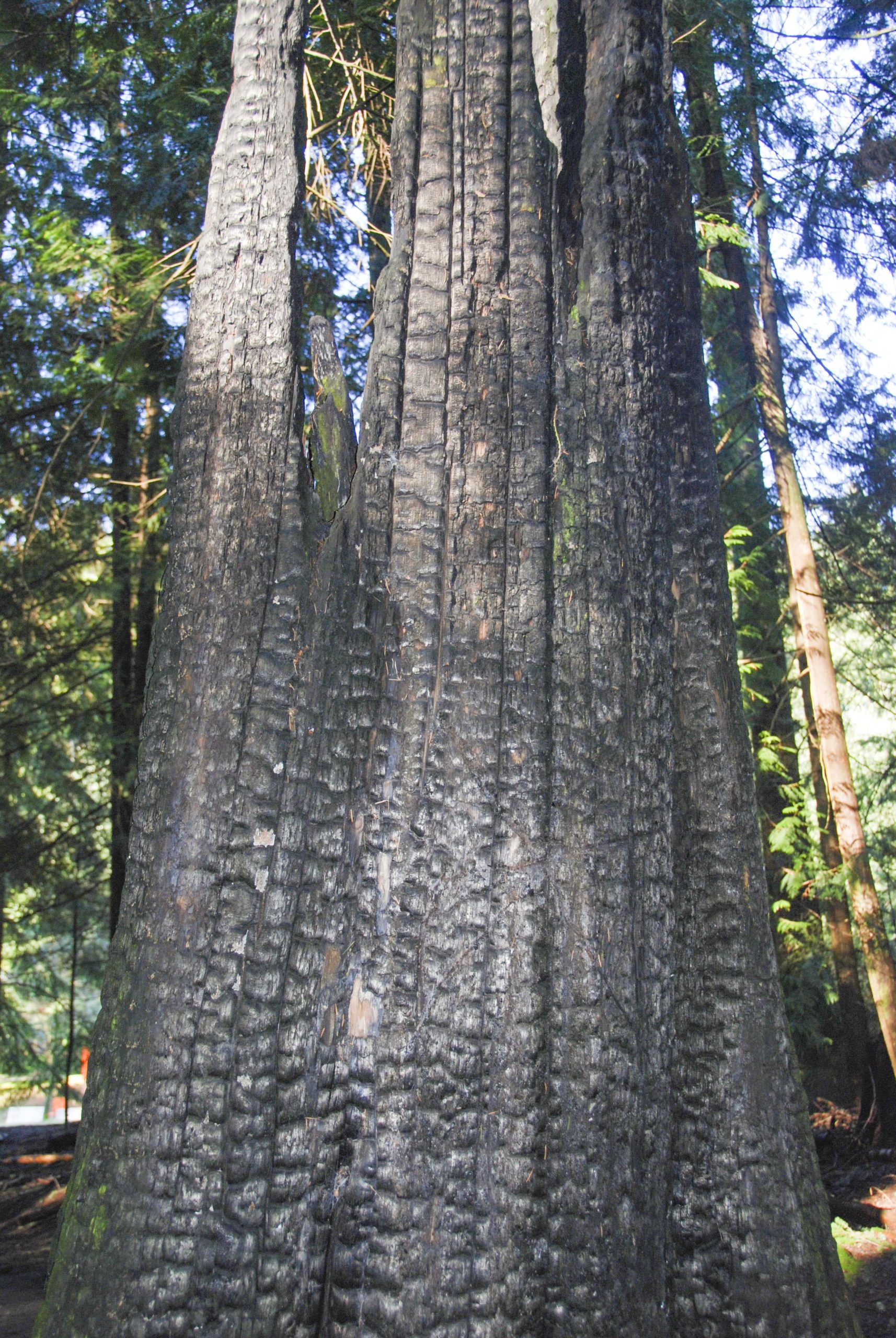 Each year, Oregon braces for wildfire season. And each year, we spend tens of millions (sometimes hundreds of millions) trying to put those fires out. But despite our best efforts, the fires keep getting worse — more dangerous and more destructive. Science tells us that suppression alone isn’t enough. To meaningfully reduce risk, we must invest in proactive mitigation, restoring the health and resilience of fire-prone landscapes, and helping communities prepare for wildfire and smoke. This legislative session, Oregon lawmakers have a chance to make an important initial investment to protect our forests, our homes, and our public health in the long run. A package of bills now under consideration would provide $280 million per biennium for a comprehensive wildfire response. These bills reflect recommendations from the Wildfire Funding Work Group, convened by the State Fire Marshal, Oregon Department of Forestry, Governor Tina Kotek, Tribal Nations, and shaped by a wide array of stakeholders.
Each year, Oregon braces for wildfire season. And each year, we spend tens of millions (sometimes hundreds of millions) trying to put those fires out. But despite our best efforts, the fires keep getting worse — more dangerous and more destructive. Science tells us that suppression alone isn’t enough. To meaningfully reduce risk, we must invest in proactive mitigation, restoring the health and resilience of fire-prone landscapes, and helping communities prepare for wildfire and smoke. This legislative session, Oregon lawmakers have a chance to make an important initial investment to protect our forests, our homes, and our public health in the long run. A package of bills now under consideration would provide $280 million per biennium for a comprehensive wildfire response. These bills reflect recommendations from the Wildfire Funding Work Group, convened by the State Fire Marshal, Oregon Department of Forestry, Governor Tina Kotek, Tribal Nations, and shaped by a wide array of stakeholders. 
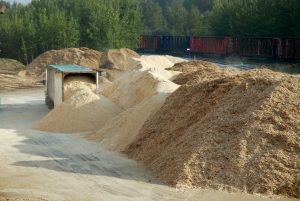 A California nonprofit organization has decided to revise its controversial plan to build two wood pellet processing plants that would turn excess biomass in the state’s forests into pellets to be shipped overseas for use in renewable energy generation. Golden State Natural Resources said Wednesday it will develop a reduced-scale project focused on domestic, rather than international, use of sourced wood, producing wood chips instead of pellets. The project will target emerging demand in California and nearby regions for sustainable energy and alternative wood products. The organization’s proposed Forest Resiliency Project has drawn the ire of environmentalists who say California needs to rethink “falling for the biomass delusion.” Golden State Natural Resources was formed by rural counties to reduce massive wildfires fueled by overgrown, undermanaged forests. The project aims to use low-value forest material like ladder fuels and dead trees to lower wildfire risk and improve forest health.
A California nonprofit organization has decided to revise its controversial plan to build two wood pellet processing plants that would turn excess biomass in the state’s forests into pellets to be shipped overseas for use in renewable energy generation. Golden State Natural Resources said Wednesday it will develop a reduced-scale project focused on domestic, rather than international, use of sourced wood, producing wood chips instead of pellets. The project will target emerging demand in California and nearby regions for sustainable energy and alternative wood products. The organization’s proposed Forest Resiliency Project has drawn the ire of environmentalists who say California needs to rethink “falling for the biomass delusion.” Golden State Natural Resources was formed by rural counties to reduce massive wildfires fueled by overgrown, undermanaged forests. The project aims to use low-value forest material like ladder fuels and dead trees to lower wildfire risk and improve forest health. 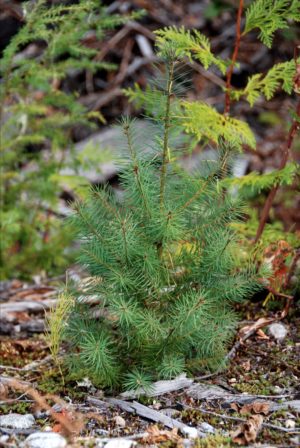
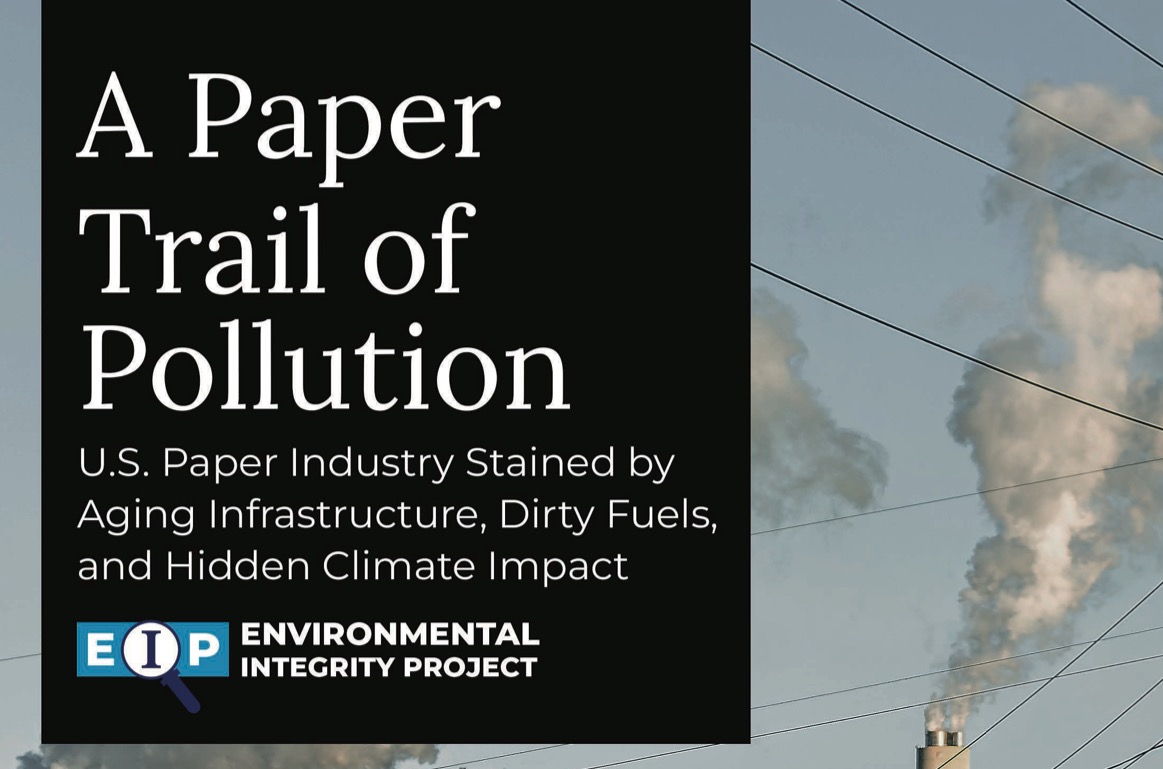 A
A  PANGUITCH, Utah — The France Canyon fire has increased to 23,353 acres and is currently at 10% containment, according to the latest information posted by the U.S. Forest Service – Dixie National Forest. Officials say fire activity increased at around 2 p.m. on Sunday, June 22, pushing eastward into the Kings Creek Campground area. Firefighters had to conduct a tactical firing operation to protect the campground. A total of 749 personnel are battling the fire and working on securing structures within Wilson Peak, the Hillsdale and Johnson Canyons. Firefighters are also working to keep the fire west of East Fork Road. Efforts are also underway to protect the Bryce Woodland community on the southwest side of the wildfire perimeter.
PANGUITCH, Utah — The France Canyon fire has increased to 23,353 acres and is currently at 10% containment, according to the latest information posted by the U.S. Forest Service – Dixie National Forest. Officials say fire activity increased at around 2 p.m. on Sunday, June 22, pushing eastward into the Kings Creek Campground area. Firefighters had to conduct a tactical firing operation to protect the campground. A total of 749 personnel are battling the fire and working on securing structures within Wilson Peak, the Hillsdale and Johnson Canyons. Firefighters are also working to keep the fire west of East Fork Road. Efforts are also underway to protect the Bryce Woodland community on the southwest side of the wildfire perimeter.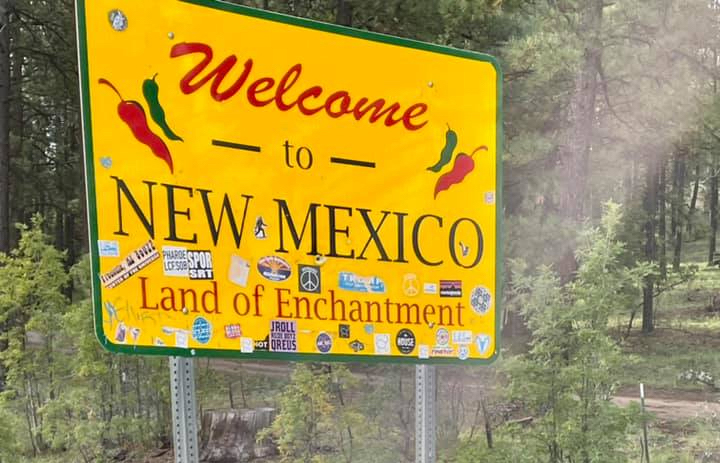 Forest fires have broken out in parts of New Mexico that state forecasters had already warned would see an elevated wildfire risk this summer due to high temperatures, low snowpack and ongoing drought. At least 25 New Mexico jurisdictions imposed some level of fire restriction this spring. State Forester Laura McCarthy said the peak of fire season is still a week away, beginning June 26. …On Tuesday, New Mexico Governor Michelle Lujan Grisham declared a state of emergency in response to the Trout Fire, which is burning in the Gila National Forest, forcing residents to evacuate. The Buck Fire also has burned more than 57,000 acres in the same area of Southwest New Mexico. The governor has urged localities to ban fireworks and restrict water usage. …”If you look at every single big fire we’ve had, there was either a lightning strike or a person behind it,” she added.
Forest fires have broken out in parts of New Mexico that state forecasters had already warned would see an elevated wildfire risk this summer due to high temperatures, low snowpack and ongoing drought. At least 25 New Mexico jurisdictions imposed some level of fire restriction this spring. State Forester Laura McCarthy said the peak of fire season is still a week away, beginning June 26. …On Tuesday, New Mexico Governor Michelle Lujan Grisham declared a state of emergency in response to the Trout Fire, which is burning in the Gila National Forest, forcing residents to evacuate. The Buck Fire also has burned more than 57,000 acres in the same area of Southwest New Mexico. The governor has urged localities to ban fireworks and restrict water usage. …”If you look at every single big fire we’ve had, there was either a lightning strike or a person behind it,” she added.